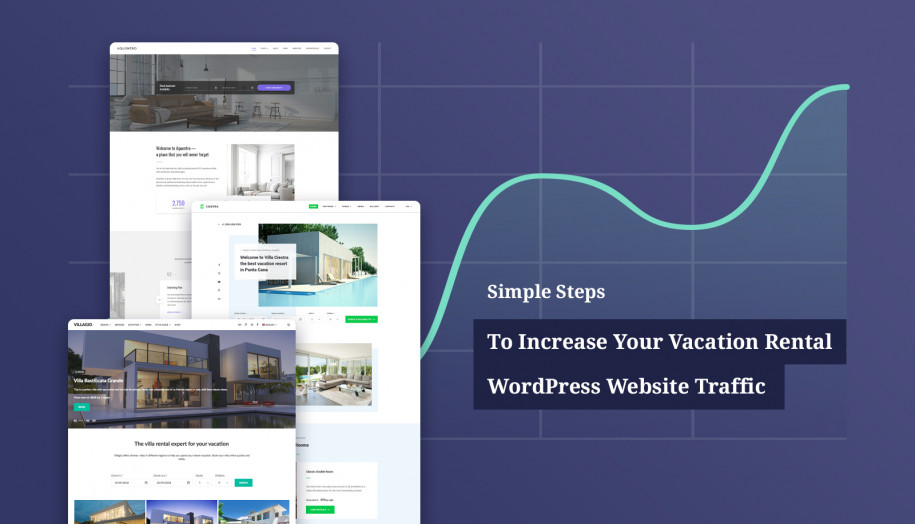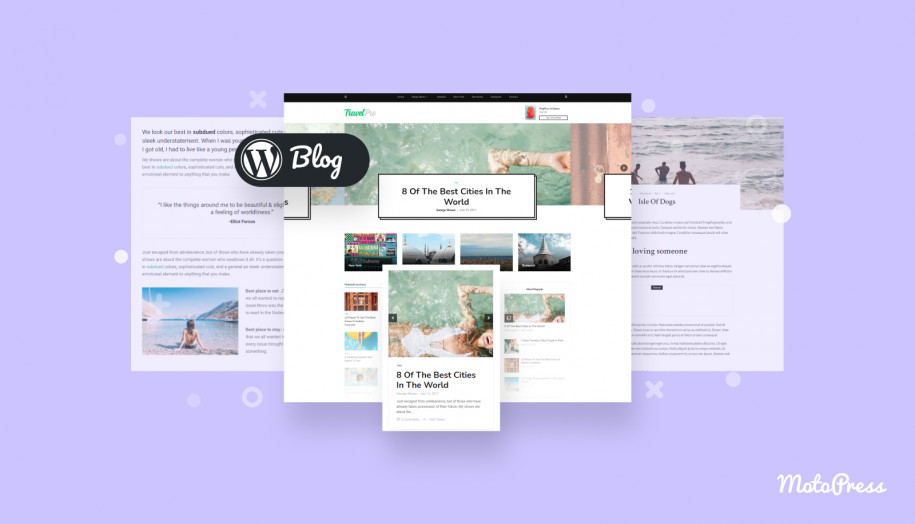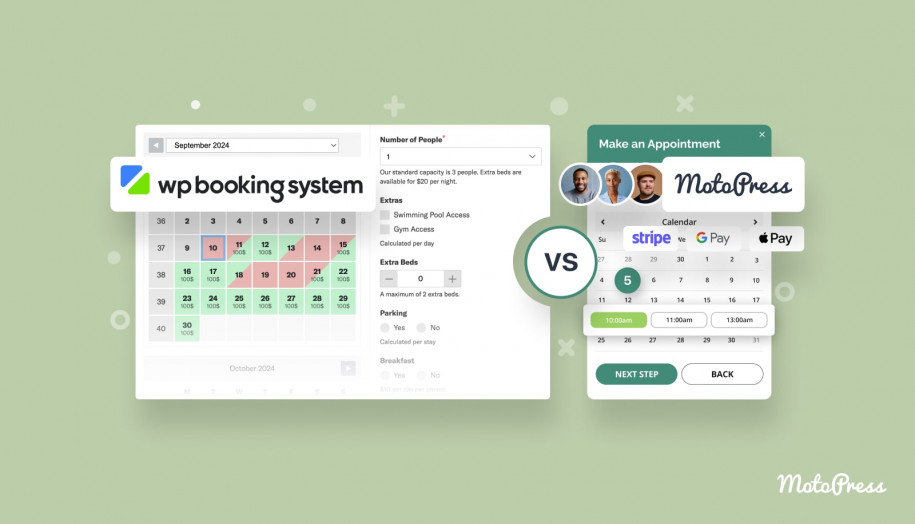10 SEO Tips for Travel Booking Website
Table of Contents
Are you looking for travel website SEO recommendations to help you compete for a better search result ranking? If so, you may be interested in our search engine optimization tips for websites in the travel and accommodation industries. Keep reading to learn more about ways of achieving the desired result using well-tested techniques & SEO trends.
Top 10 Tips for Travel Website SEO
Travel websites are always there when your guests need to choose their next summer or winter destination. However, if you are not a big OTA, a huge amount of marketing effort is required to make it easy for travelers to find such sites. SEO strategy for travel website plays a considerable role here. Various techniques used for optimizing websites to appear higher in SERPs can also be applied to travel websites. Here are some of them:
- Strategic usage of keywords;
- Structuring data on your website;
- Online reputation maintenance;
- Quality content creation;
- Tracking your analytics.
These are just a few steps toward increasing your website’s visibility. However, if you want to fully harness the potential of your online presence, applying them will only be the first step towards better travel SEO ranking. Now let’s take a detailed look at various techniques and methods that can help your tour firm or hotel present their services online the best way.
1. Mobile-Friendly Design & Optimized Performance
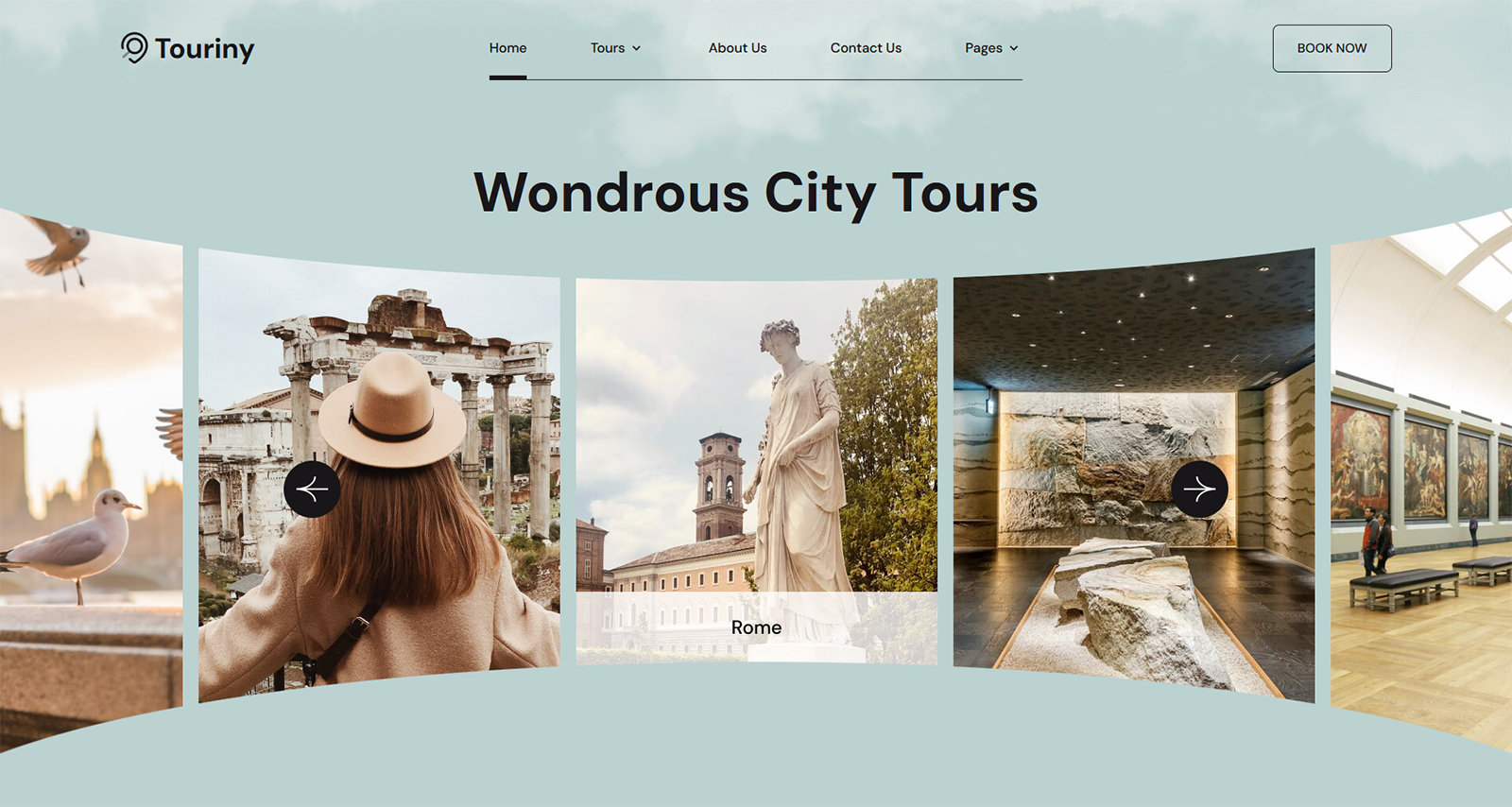 One of the first things to consider is how mobile-ready your website is. This factor influences both SEO for travel website and user experience. You can ensure the best option by using a responsive WordPress theme, such as Touriny.
One of the first things to consider is how mobile-ready your website is. This factor influences both SEO for travel website and user experience. You can ensure the best option by using a responsive WordPress theme, such as Touriny.
Being the top solution for travel agency websites, Touriny offers a 100% responsive layout. As a result, it helps you create the proper representation of your travel business regardless of the device.
Moreover, it’s built on top of the WordPress blocks (aka Gutenberg) site editor. The Getwid plugin by MotoPress is also included to provide top-notch customization options. And if you need to manage your tour bookings effectively, the provided Appointment Booking plugin can easily help you with scheduling. Other notable advantages of using this theme in your SEO strategy for travel website are:
- Individual & multiple tour pages, which allow guests to see your offerings in various formats;
- Simple & responsive tour booking pages;
- Dedicated tour guide pages;
- Online payment gateways for faster transactions;
- Gallery & blog for providing extra content for your clients;
- A variety of widgets.
2. Local SEO
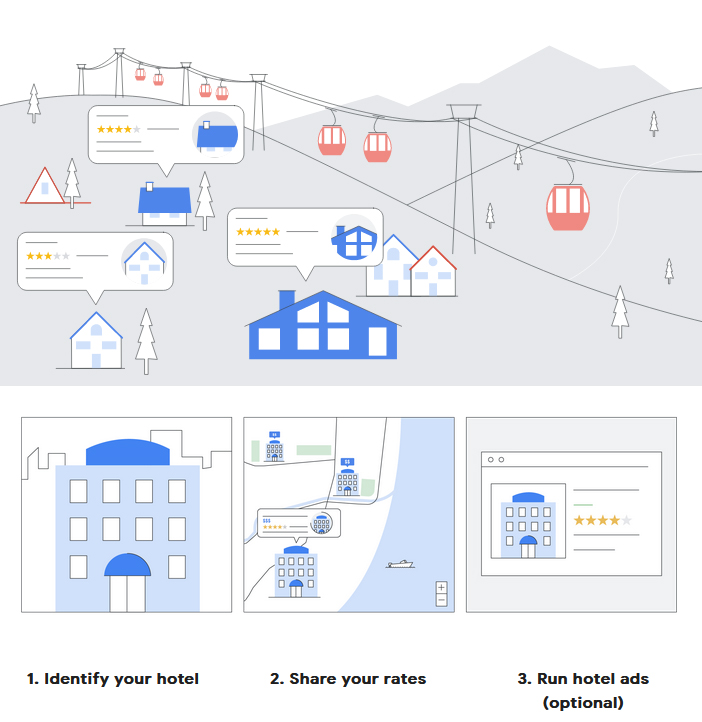 Being a business that depends on locations and seasonality, travel agencies heavily rely on customers from the nearest area. That’s where local SEO may come in handy. When a user enters a search query, Google and many other search engines, consider their location before displaying the search results. To ensure the best results for your travel website SEO, make sure to:
Being a business that depends on locations and seasonality, travel agencies heavily rely on customers from the nearest area. That’s where local SEO may come in handy. When a user enters a search query, Google and many other search engines, consider their location before displaying the search results. To ensure the best results for your travel website SEO, make sure to:
- Claim your business profile on Google to ensure better visibility;
- Apply the proper keywords that your local customers may be interested in;
- Add and regularly update photos on your Google Business profile;
- Use review management to build your local brand identity;
- Create localized content for your clients;
- Learn Google opportunities for hotel owners.
3. Keyword Usage
Effective usage of keywords often makes a huge difference in travel website SEO.
That’s why most successful travel agencies put a lot of time and effort into relevant keyword research and integration throughout the website.
From blog posts to social network ads & meta descriptions, adding location-specific keywords as well as those related to your business niche can assist you with improving the impact of SEO on your website.
4. On-Page Search Engine Optimization for Travel Website SEO
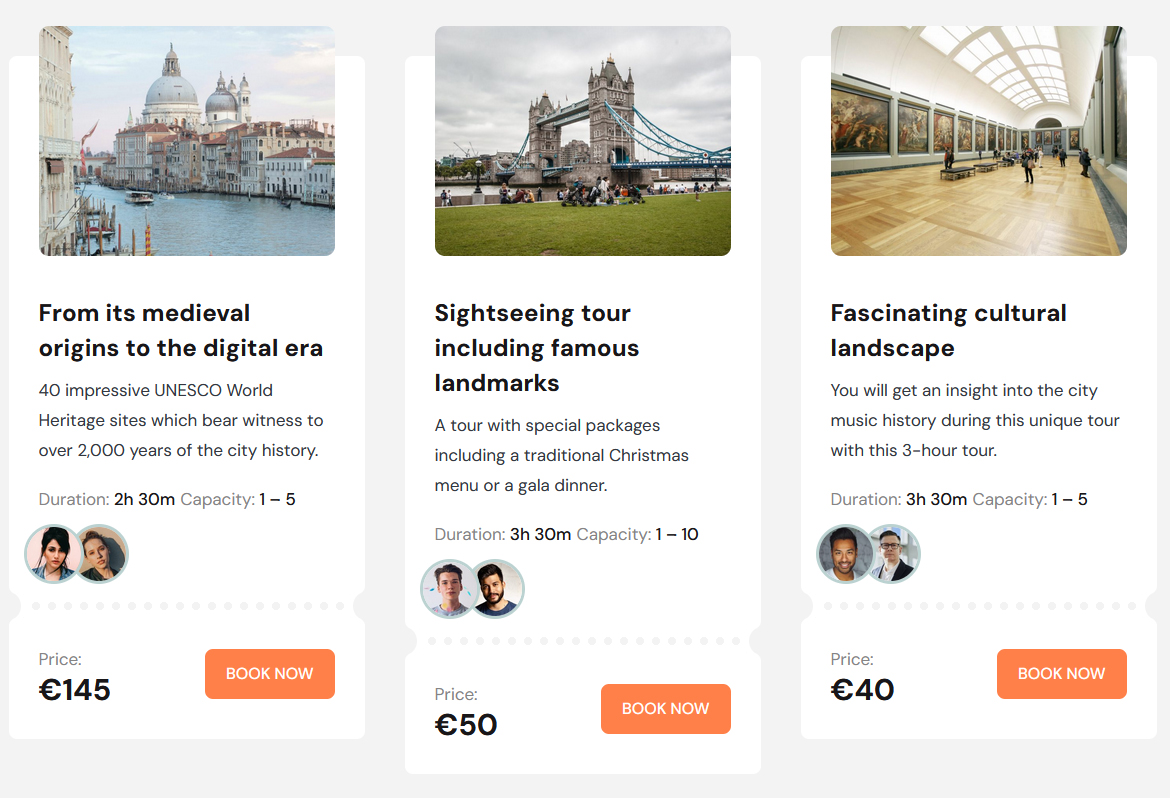 One of the most powerful techniques for travel website optimization is on-page SEO. It gives you better control over search engines perceiving your site properly. Note that with this type of SEO, pages require diverse approaches to content and keywords. Still, there are some factors to remember when performing on-page SEO for travel websites:
One of the most powerful techniques for travel website optimization is on-page SEO. It gives you better control over search engines perceiving your site properly. Note that with this type of SEO, pages require diverse approaches to content and keywords. Still, there are some factors to remember when performing on-page SEO for travel websites:
- Add unique content for every website page;
- Write keyword-rich page titles;
- Create easy-to-understand page structure using headings;
- Provide attractive & engaging meta descriptions;
- Optimize URLs throughout your website;
- Include quality images optimized for the Web;
- Provide external and internal links on various pages.
These are some basic principles of on-page SEO. However, travel agencies may benefit from adding industry-specific elements and content to their websites. From tour photos to popular travel packages, there’s a lot you can add. These elements make your website attractive to both search engines and your customers:
- Easy-to-use search & booking system for tours & excursions;
- Landing pages for diverse destinations and tour categories;
- Trending content from your tour agency’s blog;
- Detailed travel package description;
- Rates and availability calendar;
- Contact details & live chat.
5. Blogging SEO for Travel Website
 The importance of content and blogging in SEO strategy for travel website cannot be overestimated. It is one of the most effective ways of driving traffic for any business, including travel agencies. It not only allows you to efficiently integrate keywords but also helps to engage your readers and convert them into clients.
The importance of content and blogging in SEO strategy for travel website cannot be overestimated. It is one of the most effective ways of driving traffic for any business, including travel agencies. It not only allows you to efficiently integrate keywords but also helps to engage your readers and convert them into clients.
With WordPress, adding an easy-to-manage blog to help you with travel SEO is simple. Moreover, some plugins and design solutions, such as the Touriny theme mentioned above or various SEO plugins can even help you establish a well-designed blog without hiring a web developer.
To get started, you can post traveling tips for your potential customers, destination-based tips for travelers, diverse culinary & event guides, and much more. Remember that posts in your travel blog need to feature the following:
- Competitive & topic-oriented keywords;
- Unique images & videos of high quality;
- Meta description to help your readers quickly learn the topic of any post;
- Properly used headings & subheadings;
- Authoritative content offering useful knowledge or recommendations.
6. Technical SEO
Travel website SEO isn’t based only on content. It also requires certain measures & improvements that make your website stand out.
Utilizing Google’s analytical tools is highly recommended to ensure the best results. We are talking about Google Analytics and Google Search Console. The first tool will help you determine the performance of your site. And the second one shows how the search engine indexes your site.
Additionally, technical SEO for travel websites can be enhanced by improving the structure of your site. First of all, this includes easy navigation with key pages and categories of your websites being accessible in a few clicks and easily visible to your clients. Moreover, it is highly necessary to remove broken links and replace them with new ones. Don’t forget to check your website regularly and ensure it delivers the best user experience as it also influences your travel website SEO.
7. Schema Markup
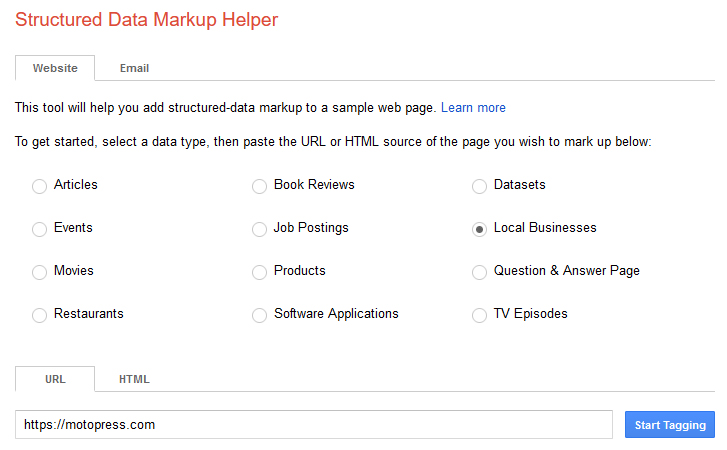 Structuring the data on your website helps search engines deliver proper results to your customers. Thus, it increases your traffic and ranking in SERPs. Schema markup can help a lot with it. Using Google’s Structured Data Markup Helper, you can generate a code to display relevant data from your website in the search results, for example:
Structuring the data on your website helps search engines deliver proper results to your customers. Thus, it increases your traffic and ranking in SERPs. Schema markup can help a lot with it. Using Google’s Structured Data Markup Helper, you can generate a code to display relevant data from your website in the search results, for example:
- Average tour rating;
- Amount of reviews;
- Frequently asked questions;
- Accommodation types;
- Pricing options.
8. The Role of Link Building in SEO Tips for Travel Website
If you want to increase your site’s potential, we also recommend link building. It is one of the most commonly used off-page SEO practices. Inbound links from authoritative and relevant websites, for example, allow you to improve your rankings and online reputation. Travel websites can often get useful backlinks from tour-planning websites as well as local businesses, such as tourist attractions or hotels. It can be a great start for new business partnerships, too.
For travel SEO, you can try these methods of link-building:
- Working with influencers & travel bloggers;
- Writing guest posts for relevant websites;
- Creating interactive itineraries & maps for tourists;
- Adding your website to travel directories.
9. Core Web Vitals
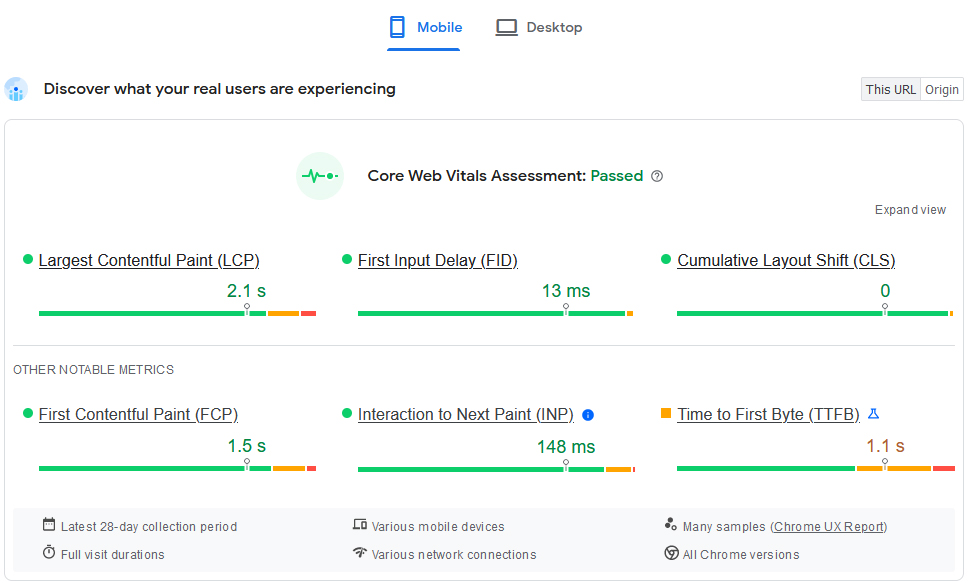 When it comes to improving your website’s performance for SEO, Core Web Vitals can provide additional analysis of your website. This helps to ensure the expectations of search engines and customers are met.
When it comes to improving your website’s performance for SEO, Core Web Vitals can provide additional analysis of your website. This helps to ensure the expectations of search engines and customers are met.
With 3 diverse metrics, you can learn how your website performs by using Google’s PageSpeed Insights. Additionally, it allows you to diagnose your website for any performance issues. Then, you’ll get recommendations for improving the score. The improvements can be introduced to both mobile and desktop versions of your website. Here’s what you can analyze with this tool:
- Unexpected page movement and layout changes;
- The time interval required to process the user’s actions;
- Loading speed for the biggest content section;
- Various accessibility issues;
- Areas of possible SEO improvements.
10. Social SEO for Travel Company
Many travel agencies use social media. It is a part of their SEO strategy for travel website. This way they can boost traffic and improve online reputation. Active work on socials that are popular among your target audience plays an important part in this type of search engine optimization.
First of all, we recommend creating profiles for your travel agency or hotel on Facebook, Instagram, or X (formerly known as Twitter). There you can share the recent updates and services provided by your team.
Such an approach also allows you to make your agency’s offers more discoverable as many people tend to search for excursions and tours on socials first. Additionally, don’t forget to join travel-related online communities to promote your services to larger groups of people.
Conclusion: What are the most effective SEO tips for travel agency?
This list of SEO tips for travel website can help you improve your travel agency’s ranking. However, there’s always more to do. One of the examples is constant auditing of your website for possible SEO issues. It can often give you an advantage over your competitors. Moreover, travel-oriented SEO can help you with the following:
- Improving your website’s visibility: SEO measures are great for improving the overall visibility of your travel agency website. While the primary goal of SEO is to help you appear higher than your competitors, it also serves the purpose of better discoverability.
- Strong brand reputation: With better SEO potential and higher positions in the search results, you can share your expert opinion and become a trustworthy source of travel information for your site visitors.
- Easy reach of the targeted audience: If you constantly work on your social and local SEO, reaching the targeted audience interested in your tours and related services can be done faster and with more efficient results than before.
- Better user experience: Properly implemented SEO strategy for travel website also results in an improved experience for your users, both new and regular ones. Even with technical search engine optimization measures, you can positively transform your website and make it easy to use on any platform.



